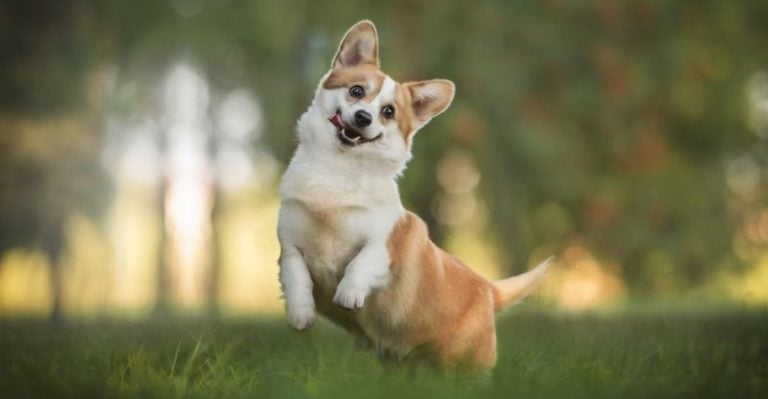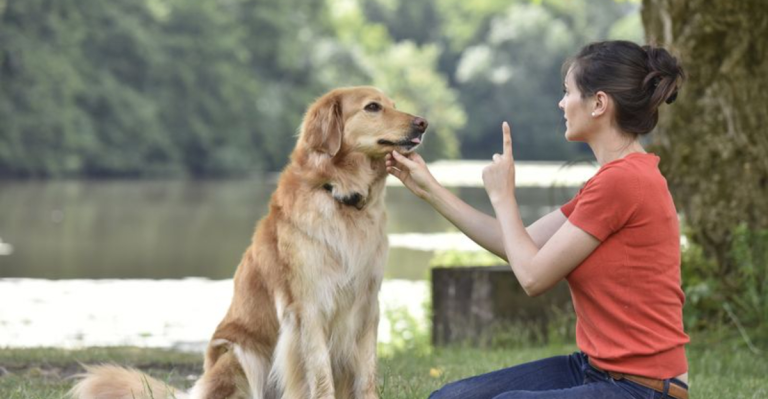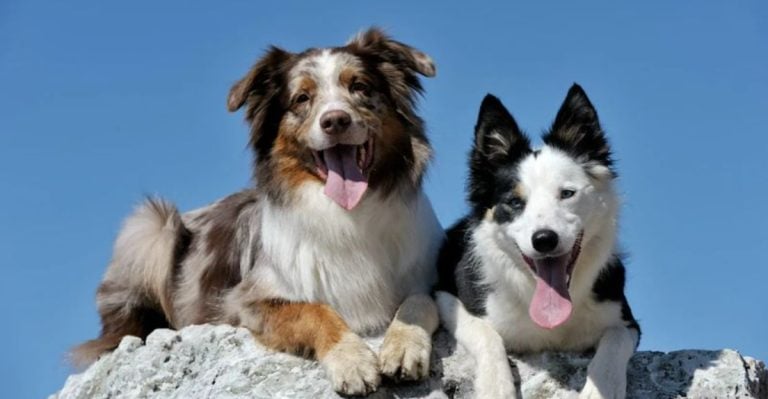17 Dog Breeds That Are Selective and Rarely Get Along with Other Dogs
Some dogs are social butterflies who thrive in packs, effortlessly making friends at the dog park or welcoming new canine siblings with open paws. But not every breed is built for buddy-buddy relationships. In fact, some dogs are naturally more selective—choosing their companions carefully, or sometimes not at all. Whether due to their guarding instincts, hunting backgrounds, or strong-willed personalities, these breeds often struggle to share space with other dogs.
It’s important to note that being “selective” doesn’t necessarily mean aggressive. Many of these breeds are deeply loyal to their humans and can be excellent pets in the right environment. However, they may show signs of discomfort, territoriality, or reactivity when around unfamiliar dogs—or even when expected to share their home with another pup. For potential owners, that means extra attention to socialization, training, and knowing exactly what kind of behavior to expect.
In this list, we’re spotlighting 17 dog breeds that tend to be less-than-social with their fellow canines. Some are notorious for picking fights, while others simply prefer solitude or human companionship. Understanding these tendencies is crucial—not just for choosing the right breed for your household, but also for creating a safer, more harmonious environment for everyone involved.
Whether you’re a lifelong dog lover or a first-time adopter doing your research, this guide will help you identify which breeds are better off flying solo. From feisty small dogs with big opinions to large, protective guardians who see other dogs as a threat, these breeds all share one common trait—they rarely get along with their own kind. If you’re considering adding a new dog to a multi-pet household, you might want to think twice before choosing one of these.
1. Akita: The Noble Loner
Commanding respect with every step, Akitas carry themselves with dignified independence that often translates to dominance around other dogs. Originally bred as hunters and guardians in Japan, they maintain strong protective instincts that make them wary of unfamiliar canines.
Their powerful build and confident demeanor can intimidate other dogs, often leading to tense encounters at the dog park. Early socialization helps, but many Akitas simply prefer being the only dog receiving your attention.
Even well-trained Akitas typically remain selective about their canine friends, choosing quality over quantity in their social circle.
2. Chihuahua: Tiny Dog, Giant Attitude
Don’t let their diminutive size fool you – Chihuahuas pack enough attitude for dogs ten times their size. These pocket-sized pups often compensate for their small stature with oversized personalities that can rub other dogs the wrong way.
Many Chihuahuas bond intensely with their humans while remaining suspicious of other animals. Their tendency to stand their ground, regardless of size differences, frequently leads to confrontations that might seem comical but can escalate quickly.
Proper socialization can help, but many Chi owners find their little companions prefer human company to canine playmates.
3. American Pit Bull Terrier: Selective Socializer
Contrary to some stereotypes, Pit Bulls typically adore humans but can be quite choosy about their dog friends. Their powerful physique combined with a determined personality means they rarely back down when challenged by another dog.
History plays a role here – these dogs were originally bred for less sociable purposes, creating a genetic predisposition toward dog selectivity. Many Pit owners find their dogs form a few close canine friendships while remaining indifferent or reactive to unfamiliar dogs.
With proper training and management, these loyal companions can learn appropriate greetings, but many retain their selective nature throughout life.
4. Jack Russell Terrier: Small Package, Big Personality
Bursting with energy and confidence, Jack Russells approach life with a fearlessness that frequently puts them at odds with other dogs. Their hunting background has blessed them with tenacity that can quickly transform into stubbornness during canine confrontations.
These little firecrackers were bred to work independently, chasing foxes into their dens without backup. That solo-mission mindset often translates to a dog that doesn’t feel the need for canine companionship.
Their quick-to-react nature and tendency to stand their ground regardless of size difference makes many Jack Russells better suited as only dogs in adult households.
5. Shar-Pei: The Wrinkled Recluse
Behind those adorable wrinkles lies a fiercely independent spirit that often prefers solitude to socialization. Shar-Peis carry themselves with a reserved dignity that can quickly transform into reactivity when their personal space feels threatened.
Originally bred as guardians in China, they maintain strong protective instincts that make them naturally suspicious of unfamiliar dogs. Their unique body language can be difficult for other dogs to read, creating communication barriers that sometimes lead to misunderstandings.
While some Shar-Peis tolerate select canine companions, many prefer the exclusive company of their human family members.
6. Doberman Pinscher: The Vigilant Protector
Athletic and intelligent, Dobermans approach canine interactions with the same intensity they bring to everything else. Their natural protective instincts can make them wary of unfamiliar dogs, particularly around their family or territory.
Historically developed as personal protection dogs, Dobermans possess a vigilance that can manifest as reactivity when they perceive threats to their people. Their imposing presence and direct approach to confrontation often intimidate other dogs, creating tension before interaction even begins.
While well-socialized Dobermans can learn appropriate greeting skills, many remain selective about their canine companions throughout their lives.
7. Dachshund: The Stubborn Sausage
Long bodies and even longer memories make Dachshunds surprisingly challenging companions in multi-dog households. Bred to hunt badgers independently, these determined little dogs carry a boldness that frequently puts them at odds with other canines.
Their distinctive bark often signals their territorial nature, warning other dogs to keep their distance. Despite their small stature, Dachshunds rarely back down from confrontations, sometimes leading to tense situations with larger breeds.
Their strong prey drive can trigger chasing behaviors toward smaller dogs, while their stubborn streak makes them reluctant to submit to larger ones.
8. Alaskan Malamute: The Pack Hierarchist
Majestic and powerful, Malamutes bring ancient pack mentalities to modern dog interactions. These Arctic workhorses weren’t bred for dog park pleasantries but for establishing clear hierarchies within working teams.
Their imposing size and strong-willed nature can create challenging dynamics with other dogs, particularly those of the same sex. Many Malamute owners discover their dogs form strong opinions about certain canines while completely dismissing others.
Their play style tends toward rough-and-tumble wrestling that can overwhelm more sensitive breeds. While they may form close bonds with household dogs, many Malamutes remain selectively social throughout their lives.
9. Thai Bangkaew Dog: The Cautious Guardian
Relatively unknown outside Southeast Asia, the Thai Bangkaew combines loyalty to family with suspicion toward strangers – both human and canine. Their spitz-like appearance houses a primitive wariness that makes them naturally hesitant around unfamiliar dogs.
Village guardians by heritage, these medium-sized dogs maintain strong territorial instincts that can manifest as reactivity when other dogs approach their space. Their thick double coat and fox-like expression hint at their independent nature and tendency to make their own decisions about social interactions.
Even with extensive socialization, many Bangkaews remain selective about their canine companions, preferring familiar dogs to new acquaintances.
10. Kuchi Dog: The Desert Sentinel
Formidable guardians from Afghanistan, Kuchi dogs bring centuries of livestock protection instincts to every canine encounter. These massive, independent dogs weren’t bred for sociability but for defending flocks against predators – including other canines.
Their imposing size and natural suspicion make them challenging companions in multi-dog settings. Traditional nomadic lifestyles reinforced their territorial nature, creating dogs that naturally establish and defend boundaries against unfamiliar animals.
While capable of forming bonds with household dogs under proper conditions, many Kuchis maintain a fundamental wariness toward outside canines that rarely fades with time.
11. Belgian Malinois: The Focused Worker
Intensity defines the Belgian Malinois, from their laser-focused work ethic to their approach to canine interactions. These high-drive shepherds bring seriousness to play that can overwhelm or irritate more casual dogs.
Their herding background creates natural tendencies to control movement – often by barking, nipping, or body-blocking other dogs. Many Malinois form strong attachments to their people while remaining indifferent or reactive to unfamiliar canines.
Their intelligence and trainability make them capable of learning appropriate social skills, but many retain a businesslike approach to dog interactions rather than seeking playful friendships.
12. Shikoku: The Mountain Soloist
Ancient Japanese heritage gives the Shikoku a primitive independence that often translates to selective sociability. These medium-sized mountain hunters carry themselves with quiet confidence that can quickly become confrontational when challenged by other dogs.
Their alert, fox-like expressions reflect an intelligence that carefully evaluates each interaction on its own terms. Many Shikoku owners find their dogs form strong opinions about certain canines while completely dismissing others.
Their natural pack hierarchy awareness makes them particularly sensitive to dominant behaviors from other dogs, often responding with clear boundary-setting that can escalate without proper management.
13. Boerboel: The Territorial Giant
South African farm guardians by heritage, Boerboels approach canine introductions with the same seriousness they bring to property protection. These massive mastiffs weren’t bred for dog park pleasantries but for keeping livestock and families safe from threats – including other dogs.
Their impressive size combined with natural confidence creates a presence that few dogs challenge. Many Boerboel owners discover their gentle giants form strong attachments to family members while remaining suspicious of outside canines.
Even well-socialized individuals tend to maintain clear boundaries with unfamiliar dogs, making them challenging companions in multi-dog settings.
14. Chow Chow: The Aloof Aristocrat
Regal and reserved, Chow Chows approach canine social situations with a dignity that borders on disdain. Their lion-like appearance houses an independent spirit that often prefers solitude to socialization.
Ancient Chinese breeding for various working purposes created a dog that forms strong bonds with select family members while remaining indifferent or reactive to outsiders – both human and canine. Their unique straight-legged gait and blue-black tongues hint at their distinctive temperament, which rarely includes seeking dog friendships.
Even well-socialized Chows typically maintain an emotional distance from other dogs, preferring to observe rather than engage.
15. Basenji: The Independent Hunter
Africa’s barkless wonder brings thousands of years of independent hunting heritage to modern dog interactions. Originally bred to work alongside humans but think for themselves, Basenjis approach canine socialization with a selective attitude that puzzles many owners.
Their cat-like grooming and aloofness extend to their approach to other dogs – they simply take them or leave them. Many Basenji enthusiasts find their dogs form a few select friendships while remaining indifferent or reactive to most other canines.
Their high prey drive can trigger chasing behaviors toward smaller dogs, creating management challenges in multi-pet households.
16. Shiba Inu: The Canine Cat
Behind that fox-like smile lies a fiercely independent spirit that often views other dogs with suspicion or indifference. Japan’s small but mighty hunting dog brings primitive territorial instincts to every interaction, frequently challenging dogs many times their size.
Their characteristic “Shiba scream” often emerges during unwanted social encounters, signaling clear boundaries to both humans and canines. Many Shiba owners discover their dogs form strong opinions about certain dogs while completely dismissing others as unworthy of attention.
Their natural cleanliness and self-sufficiency extend to their social preferences – they simply don’t need canine companionship like some breeds do.
17. Scottish Terrier: The Dignified Challenger
Beneath that distinguished beard lies a feisty spirit that rarely backs down from confrontation. Scotties carry themselves with a confidence that frequently exceeds their compact size, leading to challenging encounters with larger dogs who misinterpret their signals.
Bred to hunt independently, these determined little dogs maintain strong opinions about personal space and proper canine etiquette. Their distinctive silhouette houses a territorial nature that often manifests as leash reactivity or resource guarding.
While capable of forming bonds with household dogs under proper conditions, many Scotties remain fundamentally selective about their social circles throughout their lives.























